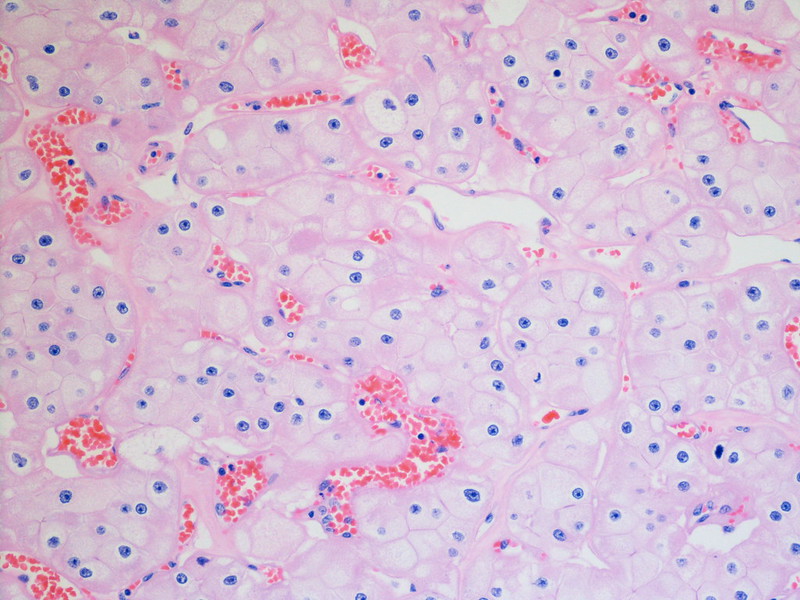
Patients with the rare von Hippel-Lindau (VHL) disease have a genetic mutation that causes benign tumors throughout the body. These tumors increase the risk of cancer, and the standard treatment is surgery to remove them. A Merck drug has cleared the regulatory bar, giving VHL patients that have developed cancer a therapeutic option.

The Funding Model for Cancer Innovation is Broken — We Can Fix It
Closing cancer health equity gaps require medical breakthroughs made possible by new funding approaches.
The FDA on Friday approved the drug, belzutifan, as a treatment for adults whose VHL disease is associated with three types of cancer: renal cell carcinoma, central nervous system hemangioblastomas, and pancreatic neuroendocrine tumors. The drug is indicated for use when these cancers require treatment but not immediate surgery. Merck will market the once-daily pill under the name “Welireg.” Its approval marks a payoff for a drug that the Kenilworth, New Jersey-based pharmaceutical giant acquired two years ago in a $1.2 billion deal.
According to the National Organization of Rare Disorders, VHL disease affects one in every 36,000 people, leading to an estimated 200,000 cases worldwide; 10,000 cases in the U.S. People who have the disease are born with a mutation to the VHL gene, which codes for a protein key to the cellular process for breaking down other proteins that are no longer needed. The VHL protein specifically targets hypoxia-inducible factor-2a (HIF-2a), a protein that regulates genes that help the body respond to hypoxia, which is the lower availability of oxygen in cells. But under certain circumstances, such as the mutations caused by VHL disease, the VHL protein doesn’t function properly, allowing HIF-2a to become more active. That increased activity leads to the expression of proteins that spark production of red blood cells blood vessels that can feed cancer’s growth.
Merck’s Welireg is a small molecule designed to bind to HIF-2a. In low-oxygen conditions or circumstances where the VHL protein can’t function properly, the drug blocks HIF-2a’s ability to trigger activity that promotes the growth of cancer cells. Welireg is the first FDA-approved drug that works this way.
The FDA decision for Welireg was based on data from an ongoing open-label clinical trial evaluating it in 61 patients with VHL-associated renal cell carcinoma, the most common type of kidney cancer. Patients enrolled in the study had other VHL-associated tumors, including tumors in the central nervous system and pancreas.
Patients in the clinical trial received a 120 mg dose of the drug once daily until the disease progressed or toxicity became unacceptable. The main goal was assessing the overall response rate to the therapy, as measured by an imaging scan. According to the FDA, treatment with the Merck drug led to a 49% overall response rate. All of the patients who responded to the treatment were followed for at least 18 months; 56% of them had a response lasting 12 months or greater and a median time to response of eight months.
The study also evaluated the drug in patients who had other types of VHL-associated tumors. In the 24 patients who had measurable central nervous system tumors, the overall response rate was 63%. Of those patients, 73% had a response that was 12 months or longer. In the 12 patients who had measurable pancreatic tumors, the overall response rate was 83%; 50% of those patients had a response lasting 12 months or longer.
The most common adverse reactions to Welireg included lower hemoglobin levels, anemia, fatigue, increased levels of the muscle waste product creatinine, and headache. The FDA cautions that anemia and hypoxia from Welireg can be severe. In the clinical trial, anemia was observed in 90% of patients and 7% of patients had anemia classified as Grade 3 (anemia is graded on a scale of 1 to 5 with 5 signifying death; Grade 3 is considered severe).
The FDA said that patients who develop anemia should receive transfusion treatments as needed, but added that the use of drugs that stimulate the bone marrow to make more blood cells is not recommended. The Welireg label also carries a boxed warning cautioning patients and clinicians that exposure to the drug during pregnancy can harm the fetus. The FDA advises patients to verify pregnancy status before starting treatment.
FDA approval of Welireg came about a month early. The FDA’s target date for a regulatory decision was Sept. 15. The approval means a big payday for the backers of the company that originally developed the drug. Belzutifan was the lead drug candidate of Peloton Therapeutics. Two years ago, as the Dallas-based biotech was poised to move forward with an IPO to fund Phase 3 tests of the drug in renal cell carcinoma, Merck acquired Peloton for $1.2 billion up front.
Now that the Welireg has FDA approval, Peloton’s former shareholders stand to gain a $50 milestone payment, plus another $50 million upon the first commercial sale of the drug in the U.S., according to terms of the acquisition agreement. Sales-based milestones could bring Peloton’s former shareholders up to $1.05 billion in additional payments. Merck said it expects the drug will become available by early September. The company has set a wholesale price, before any rebates or discounts, of $26,400 for a 30-day supply.
Merck is also developing Welireg as a potential treatment for renal cell carcinoma among other types of cancer. In February, the company began a Phase 3 study pairing the drug with Lenvima, a tyrosine kinase inhibitor developed by Japanese pharma company and R&D partner Eisai. That study is enrolling patients whose kidney cancer was previously treated and has spread.
Image by Flickr user cnicholsonpath via a Creative Commons license










